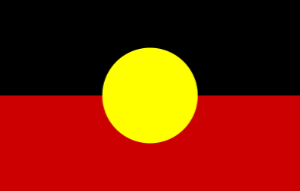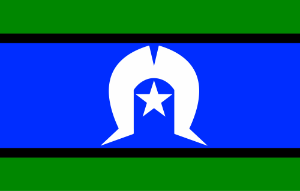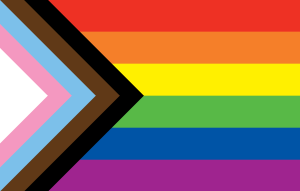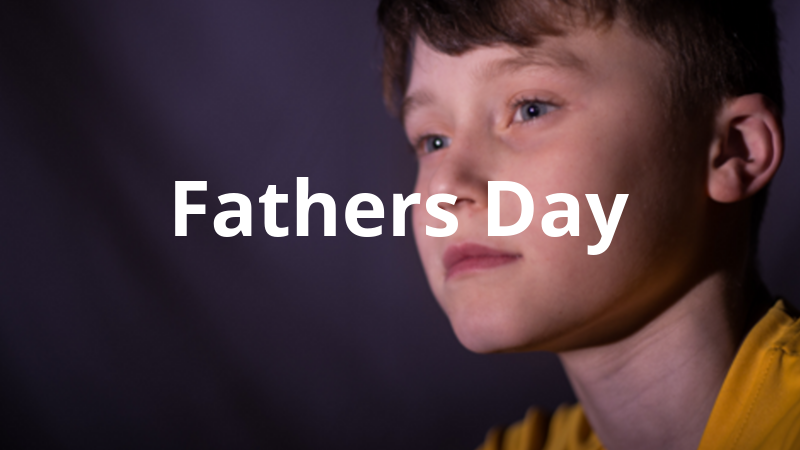Fathers’ Day
Fathers Day, like Mothers Day, is another significant occasion each year that stimulates joy for many, sorrow for the newly bereaved, and a mix of both for those who miss their fathers but treasure their memories. I know there are also many folk who never knew their fathers, and those whose fathers were abusive, absent or neglectful. I feel sensitive to their grief as I write.
Thoughts About Fathers
In the past, more sentimental thoughts tend to have been expressed about the role of mothers than about the role that fathers played in children’s lives, but this is currently changing. Traditionally, men were hunters, gatherers, protectors, teachers and disciplinarians, their attachment to offspring more pronounced as children developed. But, as with all stereotypical roles, I imagine there may have been exceptions to the rule forever, just as there have been with mothers.
Usually more powerfully built than women, and energised by testosterone, the protection of fathers was essential historically for the survival of the species. Modern interpretations of this role have expanded to include emotional protection, with fathers’ hands on involvement with children now happening in many families almost from the moment of birth.
“I cannot think of any need in children as strong as the need for a father’s protection.” Said Sigmund Freud
If asked to write and compare our own definitions of what constitutes a good father, I’m sure there would be many differences but lots of similarities.
Tom L. Perry’s quote says “A family needs a father to anchor it.”
Some might agree with Reed Markham’s quote “The quality of a father can be seen in the goals, dreams, and aspirations he sets not only for himself, but for his family.”
One that fits for me is from Umberto Eco where he says “I believe that what we become depends on what our fathers teach us at odd moments, when they aren’t trying to teach us. We are formed by little scraps of wisdom.”
Fathers Day presents an opportunity for all of us to reflect on what fathers and fathering have meant in our lives: biological fathers (living, dead or absent); step fathers, adoptive fathers, grandfathers, and siblings, uncles or other significant males who have been prepared to take on a fathering role in our lives.
Thoughts About My Own Father
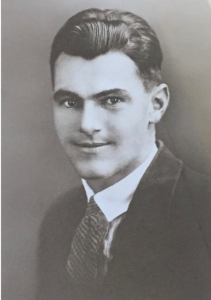 I have never stopped missing my father, but because he died so many years ago, my sadness is gentle, and warmed by
I have never stopped missing my father, but because he died so many years ago, my sadness is gentle, and warmed by
wonderful memories.
I am one of the fortunate people who grew up in a home with a father who respected women, a home where I felt loved and safe. I am grateful that my father learned about loving and respecting women from his mother and eight sisters, and from the respectful behaviour modelled by his own father. Both men valued women’s contributions to family and community life.
My dad was a happy man with a mischievous sense of humour, the opposite of the stereotypical image of accountants portrayed by comedians. Laughter was very much part of my early family life. As anyone reading my other blogs would know, my dad loved and respected all living things. He taught me, and my sisters, how to garden, how to milk a cow (a skill long forgotten), and how to raise chickens. He took us for walks in the bush and encouraged us to be still, to listen, to examine and learn about the secret life of insects, birds and butterflies. Never afraid to ask questions, he taught us the value of being curious in order to genuinely understand.
As a balance for all of his good qualities, my father was stubborn, clumsy, and a terrible cook, but he loved being let loose in the kitchen. We humoured him by suffering his oversalted porridge, burnt toast, and chicken soup (with the feet left in) groaning loudly with each mouthful, and teasing him mercilessly.
Dad responded warmly whenever he saw or heard about us being generous or kind. Praise was occasionally given with words, but was more likely to be expressed by a proud and loving look, a wink, or a hug. Maybe the scarcity of words made us remember the day he told me and my sisters that we were beautiful, but not quite as beautiful as our mother. Somehow, his obvious admiration of our mother made us feel secure, sure that he would never leave her, or us.
I still remember clearly the first time I saw my father cry. His father had just died, and as he listened to the funeral announcement on the local radio, the sight and sound of his grief touched me to my core. His tears, like the affection I had witnessed when his father visited, revealed the depth of his love in a way that words could not.
On Fathers Day I still feel a little envious when I see families celebrating with their dads, and wish I could have mine back even for one more day. I would love to show him the life I have lived, the lessons I have learned, and the way his invaluable contributions have influenced all that I am, and all I am able to enjoy. I would like to tell him the words I would use to describe him as a man and a father: honest, loving, appreciative, funny, energetic, committed, loyal, responsible, caring, a man who lived his beliefs but didn’t preach them. I wish I could tell him one more time how much I love him.
Mild envy aside, I am glad those celebrating families I enjoy watching are making the most of the opportunity to be together. Life is so short, and when loved fathers die, like all the loved people who die, we often wish we had expressed our appreciation more openly, and more often. Security can make us take many things for granted, and that’s an important part of early childhood, but as we mature, hopefully, we learn to be more sensitively aware of others, of the brevity of life, and the importance of expressing thoughts and feelings as they occur.
Fatherless Sons and Daughters
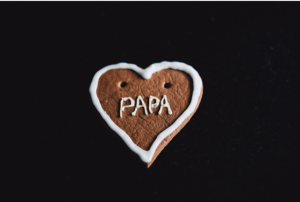 As I write these words, my thoughts go first of all to the children at ‘A Friend’s Place’ who grieve the death of fathers who died prematurely.
As I write these words, my thoughts go first of all to the children at ‘A Friend’s Place’ who grieve the death of fathers who died prematurely.
Every picture on the wall at The Centre tells a poignant story of love and heartbreak, many depicting the lasting and valued impact of fathers on young lives. I imagine that all of those children would give anything to have their dads back once again as a physical presence in their lives, especially on Fathers’ Day as they watch other families celebrating.
Slowly and courageously they are learning how to build life around the empty heart spaces left by their dad’s death, enhancing memories as they share their stories with their counsellors and other children. Their surviving parents are equally brave and willing to do whatever is possible to enable their children to live fully despite their sadness.
Fathers Day will be celebrated at The Centre as the children love in absence. More stories will be shared, cards made, activities that honour fathers will be enjoyed and celebratory food devoured with enthusiasm. Sadness and joy are comfortable companions in that safe space. The children will remember the gifts their fathers have given them – genetically, in modelled behaviour, and the lasting memories they treasure – memories of shared love and laughter, of happy and tough times. They know that each memory brought in to the open and shared with others enhances their ability to symbolically take their fathers with them into the rest of their lives.
Other Kinds of Grief
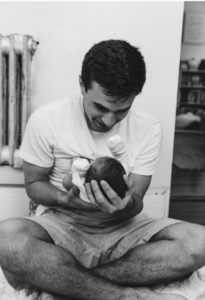 Fathers Day will be differently painful for some children, no matter what their age. Many will grieve for fathers they never met, never got to make memories with, or for fathers who died when they were too young to remember. Photos and family stories may be their only link to their father’s shadowy presence, stories that touch me and make me wish everyone had the opportunities experienced by folk on the TV show ‘Who Do You Think You Are?’
Fathers Day will be differently painful for some children, no matter what their age. Many will grieve for fathers they never met, never got to make memories with, or for fathers who died when they were too young to remember. Photos and family stories may be their only link to their father’s shadowy presence, stories that touch me and make me wish everyone had the opportunities experienced by folk on the TV show ‘Who Do You Think You Are?’
Other children, other men and women, will experience the re-opening of old wounds on Fathers’ Day. Memories may come flooding back of fathers whose abusive contribution to their lives has left painful scars, easily inflamed by the salt tears of sadness, or the acidic mix of bitterness and anger.
My heart goes out to everyone who hurts, especially on days that are happy celebrations for others. Every child needs and deserves to feel loved and wanted, to grow in a safe environment, yet I know, as most of us know, that has not been the case for far too many people.
For all of these children, survival strategies become the most important part of Father’s Day.
Survival Strategies For Grieving Folk On Fathers’ Day
If Fathers’ Day is a day of grief for you, it’s important that you do something that makes you feel good and distracts you from pain. Plan ahead, but change your mind and do something different on the day if necessary.
Sometimes, doing something kind and thoughtful for others is the best medicine. A kind of ‘do unto others what you wish had been done for you’ response.
If that isn’t the right way of dealing with your pain, you might consider one or more of the following suggestions, or creatively think of your own.
* Treat yourself to a meal that feels special
* Organise an outing or activity that would normally bring you pleasure
* Do something physically active that uses the adrenalin you may be producing on this day
* Indulge all of your senses – touch, taste, smell, sound, sight
* Buy yourself a gift
* Write a story about your life – the way you wish it had been
* Write about the father you wish you had
* Complete a task you’ve been postponing so that you feel a sense of accomplishment
* Listen to music that releases tears, then go for a walk
* Watch a movie – either one that releases tears, one that makes you laugh, or one that makes you feel compassion for someone else
* Feel sorry for yourself – write a list of all the things you feel sorry about until
you become bored, then write a list of things you appreciate, are grateful for
* Make an appointment to talk to a counsellor
Final Thoughts
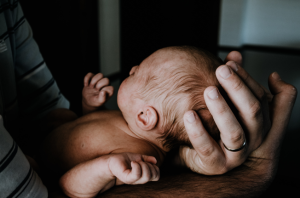
Fathers Day is important.
If you are one of the fortunate people, like me, who had a father worth celebrating, do so as creatively as possible. Tell your father what you appreciate about him, demonstrate your love, enjoy the day safely and happily with family.
And if you know someone who is hurting on this day, acknowledge that you care.
HAPPY FATHERS’ DAY from ‘A Friends Place’
Help
Help is always available – at ‘A Friend’s Place’ or by contacting our outreach service.
Dianne McKissock OAM
NCCG Outreach Support Service
Email support for dying and bereaved people and anyone involved in their care
